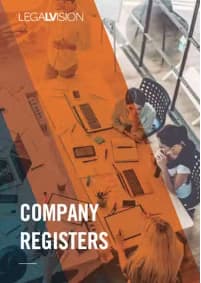Table of Contents
When a director leaves a company in the UK, it is a significant event that requires careful handling to ensure legal compliance and protect the company’s interests. The departure of a director, whether voluntary or involuntary, can have a wide range of legal, financial, and operational implications. This article explores five critical legal considerations companies must consider to manage a director’s departure effectively.
1. Resignation or Removal: Ensuring Proper Procedure
Resignation Process
When a director resigns, you must handle the process formally to ensure the resignation is legally binding. The director should provide a written notice of resignation, which the company’s board of directors should acknowledge. The company’s articles of association and service contracts may outline the specific procedures or notice periods to follow.
Removal Process
In some cases, the company may remove a director from their position. This process is more complex and must comply with the Companies Act 2006. An ordinary resolution of the shareholders can remove a director, but the director has the right to be heard at the meeting where the resolution is proposed.
2. Employment Law
Director as Employee
Employment law considerations will come into play if the departing director is also an employee of the company. Your company should review the director’s employment contract to determine the notice period, severance pay, and any applicable restrictive covenants.
Redundancy and Settlement Agreements
In cases where the director’s role is being made redundant, the company must follow the appropriate redundancy procedures, including consultation periods and redundancy payments.
Settlement agreements are often used to resolve potential disputes amicably and to ensure that the director waives any claims against the company.
Continue reading this article below the formCall 0808 196 8584 for urgent assistance.
Otherwise, complete this form and we will contact you within one business day.
3. Confidentiality and Intellectual Property
Confidentiality Obligations
Directors typically have access to sensitive company information, including trade secrets, financial data, and strategic plans.
It is crucial to ensure that the departing director continues to uphold their confidentiality obligations. Your company should review the director’s service contract and any non-disclosure agreements to enforce these obligations post-departure.
Intellectual Property Rights
If the director has been involved in creating intellectual property (IP) for the company, it is essential to ensure that all IP rights are properly assigned to the company. The director’s departure should not jeopardise the company’s ownership of IP assets.
If necessary, IP rights assignments should be documented and updated to reflect the director’s departure.

When you incorporate a company in England and Wales, you must maintain a number of company registers at its registered office or at the Companies House. This template includes these company registers.
4. Shareholding and Directorship Changes
Shareholding Adjustments
If the departing director is also a shareholder, the company must address the implications for their shareholding.
The company’s articles of association, shareholders’ agreements, and any other relevant documentation should be reviewed to determine the process for transferring or buying back shares. This may involve valuing the shares and negotiating terms for the sale or transfer.
Updating Statutory Records
Your company should record changes in directorship in the company’s statutory records and notify Companies House. This includes updating the register of directors and filing the necessary forms.
5. Legal and Financial Implications
Potential Legal Disputes
The departure of a director can sometimes lead to legal disputes, particularly if the departure is contentious or if there are disagreements over entitlements or obligations.
Your company should prepare to manage any potential legal claims, such as wrongful dismissal, breach of contract, or shareholder disputes. Engaging legal advice early in the process can help mitigate risks and resolve issues efficiently.
Financial Reporting and Audit Requirements
The departure of a director may impact the company’s financial reporting and audit requirements. The board should ensure the company’s financial records are up-to-date and conduct necessary audits.
This is particularly important if the director plays a crucial role in financial management or if the departure occurs close to a reporting period.
Key Takeaways
The departure of a company director in the UK is a multifaceted event that requires careful attention to legal, financial, and operational details. Effective communication with stakeholders, including employees, shareholders, customers, and business partners, is crucial during any transition period.
By addressing the abovementioned considerations, your company can manage the process effectively, ensure compliance with legal requirements, and protect its interests.
If you need legal assistance handling director departures, LegalVision’s experienced corporation lawyers can assist as part of our LegalVision membership. For a low monthly fee, you will have unlimited access to lawyers to answer your questions and draft and review your documents. Call us today on 0808 196 8584 or visit our membership page.
Frequently Asked Questions
The priority is for the remaining directors to appoint new directors to replace those leaving. A company with no directors can be struck off.
A resigning director is no longer responsible for the company’s day-to-day running. Their decision-making powers will shift to the remaining directors.
We appreciate your feedback – your submission has been successfully received.









